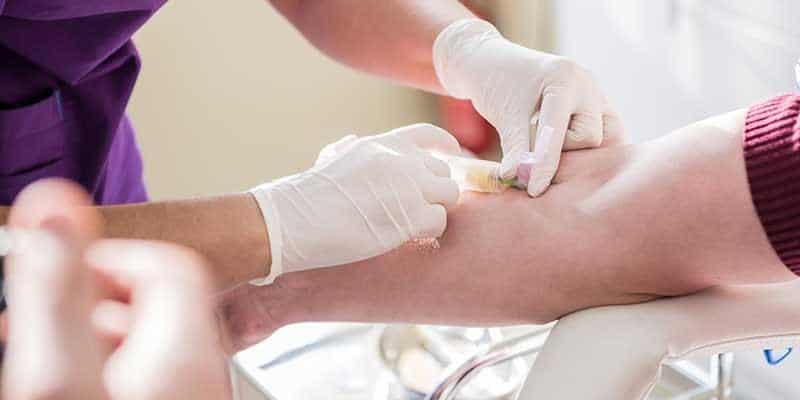-
Location: New Jersey DWI Lawyer 609 Main St. Toms River, NJ - 08753
-
Phone:
201-214-4444
732-282-1394 (1DWI)
In New Jersey, law enforcement prefers to rely on chemical testing to prove that a defendant was intoxicated while driving (DWI). Those tests aim to measure the presence of alcohol or drugs in a person’s system and provide evidence of potential impairment.
If you’re facing DWI charges, it’s crucial to understand how those tests work and the potential challenges that can sometimes be made to the admissibility or credibility of purported test results. The Law Offices of Bartholomew Baffuto specializes in defending individuals against such charges.
Types of Chemical Tests
New Jersey law enforcement utilizes three primary types of chemical tests for DWI cases, namely:
- Breath Tests– Those are the most common methods due to their convenience and extensive legal precedent outlining proper collection and analysis procedures.
- Blood Tests– Blood tests are generally used when drugs are suspected. While they are scientifically reliable, they present more legal and procedural complexities than breath tests.
- Urine Tests– Urine tests are the least reliable of the three methods. Defense attorneys often scrutinize urine tests due to their potential for errors and scientific limitations.
New Jersey DWI Law
New Jersey defines driving while intoxicated (DWI) in two ways:
- Operating Under the Influence – This means driving while impaired by alcohol, narcotics, hallucinogens, or habit-forming drugs.
- Per Se BAC Violation – Driving with a blood alcohol concentration (BAC) of 0.08% or higher, if this fact is later proven in court, automatically meets the definition of a driver impaired by alcohol.
- Implied Consent Law – New Jersey’s implied consent law mandates drivers submit to breath tests during DWI investigations. Refusal to comply can result in additional penalties.
Driving Under the Influence of Drugs (DUID)
Unlike alcohol, New Jersey does not have a specific BAC-equivalent “legal limit” for drugs that automatically defines impairment. Blood or urine tests, often necessary in DUID cases, require the driver’s consent or a warrant. This differs from breath tests under the implied consent law.
In DUID cases, prosecutors heavily rely on blood or urine tests for evidence. Additionally, they may call upon Drug Recognition Evaluators (DREs), police officers with specialized training, to provide testimony regarding a suspect’s potential impairment.
Reliability of Chemical Tests
Breath tests, using devices like the Alcotest found in all New Jersey police stations, are generally considered reliable by the New Jersey Courts. Blood and urine tests require samples to be sent to a lab for analysis.
Maintaining a documented chain of custody is crucial from when the sample is collected from the DUID suspect until it reaches the lab technician. Errors at any stage of this process can compromise the reliability of the test results. This is where it’s particularly important to hire a good DUI attorney who can scrutinize the process and identify any potential errors that could compromise the case against you.
Blood and urine tests have limitations. False positives are possible where legal substances are misinterpreted as illegal ones. Additionally, those tests cannot determine precisely when a drug was consumed, only that it is present in the system. This makes it difficult to connect impairment directly to the time of driving.
DWI lawyers play a crucial role in safeguarding the rights of individuals facing DWI charges in New Jersey. They carefully examine the evidence, including chemical test results, to identify potential errors or weaknesses in the prosecution’s case. The skilled DWI attorney at the Law Offices of Bartholomew Baffuto can advise clients on their legal options and build the strongest possible defense strategy.


